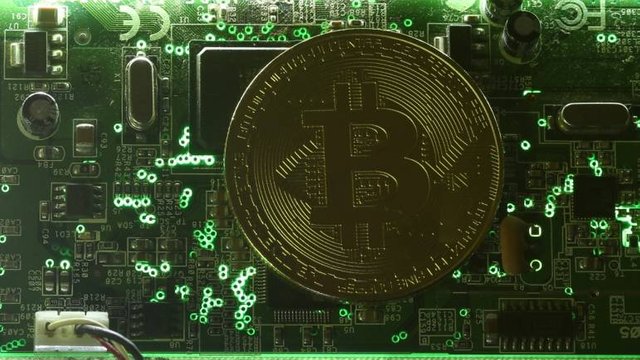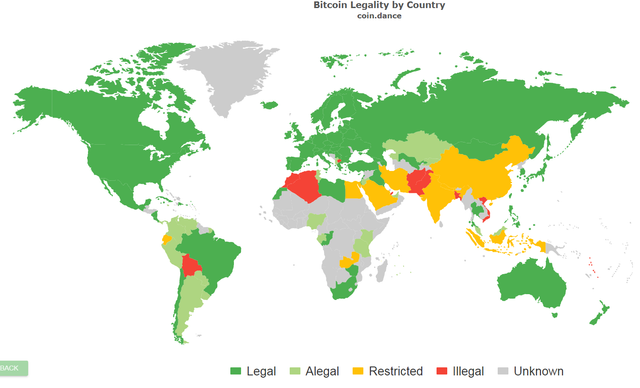Why RBI is fighting a losing battle against cryptocurrencies!!!

Rohan Abraham Moneycontrol News
When India’s central bank decided to outlaw cryptocurrencies by choking access to capital from the banking sector, it was expected to short circuit the financial grid feeding the mint churning out virtual coinage. But punitive action has not worked. Indians continue to trade and transact using cryptocurrencies. The value of transactions using bitcoin, the prominent virtual currency traded in India, increased in the weeks following the central bank’s ultimatum.
On April 6, the Reserve Bank of India (RBI) issued a diktat to banks, asking them to freeze the accounts of cryptocurrency exchanges. It also directed lenders to close the tap on the attrition of funds from customers’ accounts to decentralized currencies. The RBI has not explicitly banned cryptocurrencies, but restricted the outflow of cash from formal channels.
Virtual currencies were created with the objective of rendering the established financial order irrelevant. Blockchain, which forms the underlying technology of most cryptocurrencies, uses a ledger system and a peer-to-peer architecture, eliminating the role of a central regulatory authority. Since cryptocurrencies guarantee anonymity, authorities are wary of its being used for payouts in the underground economy.
The tug of war between regulators and advocates of virtual currencies has been one sided. The RBI’s de facto ban on cryptocurrencies has been in force for almost four months, but it has been flouted without any of its clauses being violated.
Banks have been banned from rendering services including trading, maintaining accounts, settling, clearing, and sanctioning loans against virtual tokens. It has also been directed to not accept virtual currency as collateral, transfer money for the purchase of virtual tokens, and open accounts of new cryptocurrency exchanges.
Restrictions aimed at straitjacketing virtual currencies have had the reverse impact. Despite a correction in the price of most cryptocurrencies, transactions have gone up substantially in both volume and value after RBI’s April circular.
The total value of bitcoin transactions in domestic exchanges went up almost 25 percent after the RBI decided to clamp down on virtual currencies. Between April 7 and August 18, the value of bitcoin that passed hands in the Indian market went up from Rs 6.82 crore to Rs 8.49 crore. The value of bitcoin has depreciated by 54 percent since the turn of the year. If the value of bitcoin has gone down, as has fresh inflow from financial institutions for their purchase and sale, what explains the spurt in transaction data?
Cryptocurrency exchanges and traders seem to have developed new business models to circumvent the central bank’s rules. The RBI circular said transactions in Indian rupees to buy or sell cryptocurrencies should not pass through the baking system. It does not mention anything about third-party transactions or the setting up of peer-to-peer exchanges.
Domestic exchanges like WazirX and Unocoin have moved to a system of trade based on hyperlocal peer-to-peer transfers where it acts as a facilitator. People holding cryptocurrencies such as bitcoin register with the exchange where the rupee equivalent of the currency is held in an escrow account held by the exchange.
An escrow account is one held by a third party on behalf of two other parties engaged in a transaction. Assets held in escrow are watched over by the escrow agent till contractual obligations have been met. In this case, the escrow agent is the cryptocurrency exchange.
When the person holding cryptocurrency finds a buyer online, funds for the transaction are transferred to the seller’s account. On receipt of funds, cryptocurrency is relayed to the buyer’s account. In this way, cryptocurrencies change hands without any direct interaction between banks and exchanges.
Moreover, exchanges have moved to collecting their share in cryptocurrencies. The rules laid down by the RBI dictate that exchanges cannot levy a transaction charge in rupees. Exchanges exploit the divisibility of virtual currencies to collect 0.1 percent of the value of the transaction as commission.
For example, if one bitcoin, valued at Rs 4.5 lakh, changes hands, the transaction fee will amount to Rs 450. This amount, which is equivalent to 0.001 BTC (bitcoin) will be passed on to the exchange. In this manner, exchanges and traders manage to work around the RBI’s strict guidelines.
Handy financial improvisation on the part of exchanges might have blindsided the RBI, but it is unlikely that round-tripping of funds for trade in cryptocurrencies would have been missed by the government. An inter-disciplinary panel has been set up to study the challenges facing the regulation of cryptocurrencies in the country. The panel is expected to submit its findings shortly.
Messaging apps such as WhatsApp have recently fallen under the lens of regulators after they were found to be relaying fake news, thereby facilitating mob violence. Now, the government may have yet another reason to bring encrypted messaging apps under a domestic regulatory framework.
Bitcoin traders have taken to the messaging app Telegram to organize and coordinate trade. Technology website Softonic has a list of popular Telegram channels for bitcoin traders. Localized groups are also believed to exist. Such communities exchange minute-by-minute information on prices and arbitrage opportunities.
Adding to the complexity is the fact that some exchanges are leveraging the legality of cryptocurrencies in the US, making it possible for trades to be carried out in dollars. The Karnataka-based exchange Unocoin offers a product called TrueUSD coin which is backed by the dollar. One such coin can be exchanged for $1. Those wanting to invest in cryptocurrencies like bitcoin and ethereum can buy TrueUSD coins and then proceed to the peer-t0-peeer exchange, where it can be exchanged for dollars to be held in the escrow account, and subsequently be exchanged for the desired cryptocurrency.
Another Indian exchange WazirX offers a similar solution involving TrueUSD coin. Its founder, Nischal Shetty, told Business Standard that the exchange clocks at least one transaction per minute in spite of the RBI’s hardline stance against cryptocurrencies. Since the value of a TrueUSD coin is linked to that of the dollar, it is witnessing greater demand.
Profits accrued on trade in TrueUSD can appreciate due to a softening of the rupee. If 10,000 such coins were used to purchase one bitcoin, and if the bitcoin were sold at a profit, of say 1,000 TrueUSD coins, the net profit can be more if the rupee were to depreciate in the meantime. The dollar-backed currency is therefore drawing in new investors since it is viewed as a legally sound, and financially stable.

Despite greater adoption among the populace, the government remains determined to curtail its growing financial clout. In his Budget speech in February, Finance Minister Arun Jaitley said the government will do everything to stamp out its role in funding “illegitimate activities or as part of the payment systems”.
However, cryptocurrency exchanges are hopeful that the RBI’s diktat effectively banning cryptocurrencies may be short lived. A petition filed by multiple parties opposing the RBI circular is pending before the Supreme Court. The apex court is set to deliver its verdict following the final hearing on September 11.